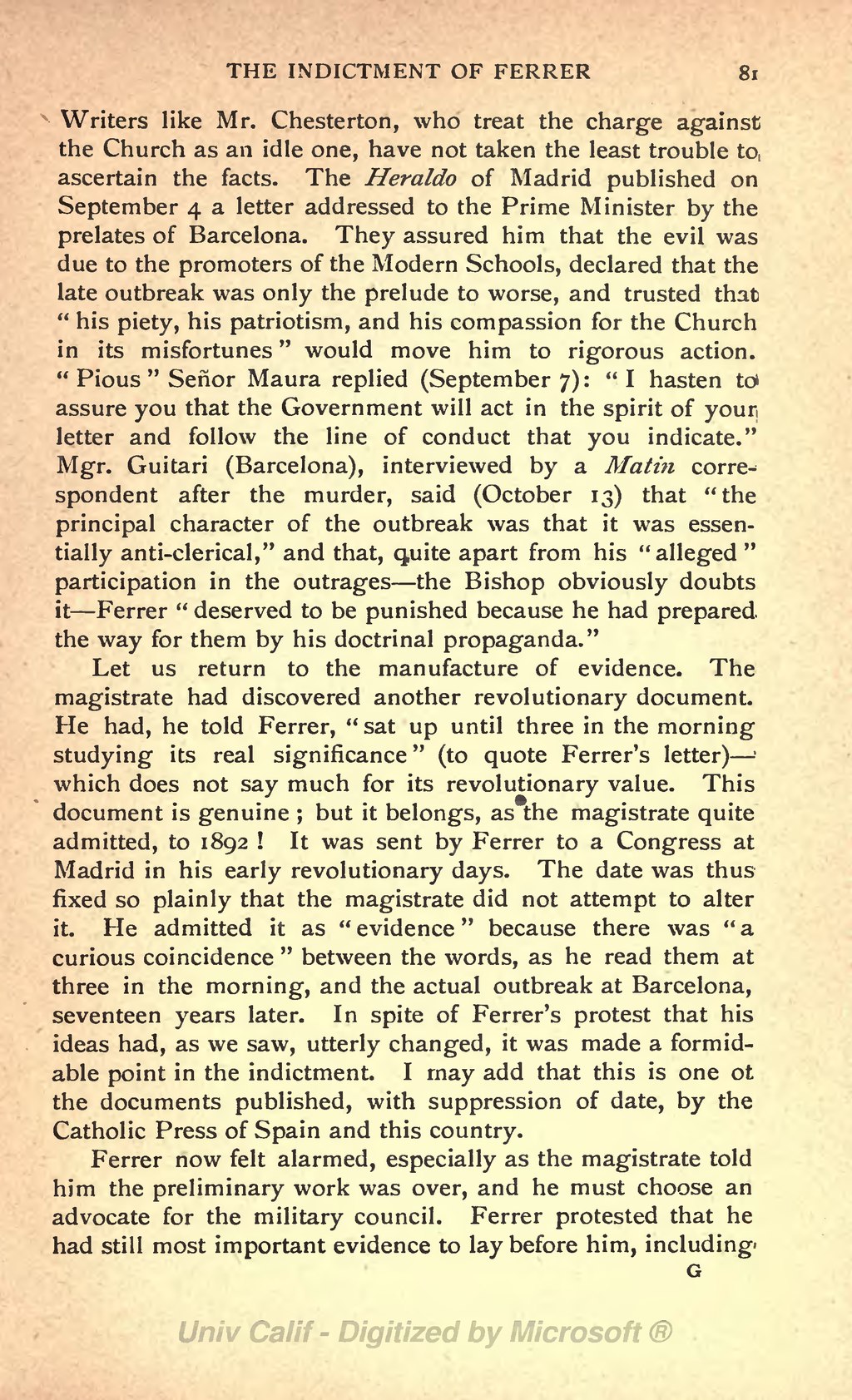Writers like Mr. Chesterton, who treat the charge against the Church as an idle one, have not taken the least trouble to ascertain the facts. The Heraldo of Madrid published on September 4 a letter addressed to the Prime Minister by the prelates of Barcelona. They assured him that the evil was due to the promoters of the Modern Schools, declared that the late outbreak was only the prelude to worse, and trusted that "his piety, his patriotism, and his compassion for the Church in its misfortunes" would move him to rigorous action. "Pious" Señor Maura replied (September 7): "I hasten to assure you that the Government will act in the spirit of your letter and follow the line of conduct that you indicate." Mgr. Guitari (Barcelona), interviewed by a Matin correspondent after the murder, said (October 13) that "the principal character of the outbreak was that it was essentially anti-clerical," and that, quite apart from his "alleged" participation in the outrages—the Bishop obviously doubts it—Ferrer "deserved to be punished because he had prepared the way for them by his doctrinal propaganda."
Let us return to the manufacture of evidence. The magistrate had discovered another revolutionary document. He had, he told Ferrer, "sat up until three in the morning studying its real significance" (to quote Ferrer's letter)—which does not say much for its revolutionary value. This document is genuine; but it belongs, as the magistrate quite admitted, to 1892! It was sent by Ferrer to a Congress at Madrid in his early revolutionary days. The date was thus fixed so plainly that the magistrate did not attempt to alter it. He admitted it as "evidence" because there was "a curious coincidence" between the words, as he read them at three in the morning, and the actual outbreak at Barcelona, seventeen years later. In spite of Ferrer's protest that his ideas had, as we saw, utterly changed, it was made a formidable point in the indictment. I may add that this is one of the documents published, with suppression of date, by the Catholic Press of Spain and this country.
Ferrer now felt alarmed, especially as the magistrate told him the preliminary work was over, and he must choose an advocate for the military council. Ferrer protested that he had still most important evidence to lay before him, including
